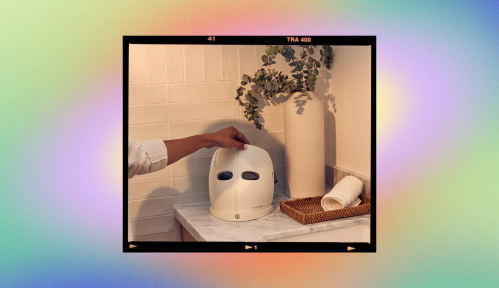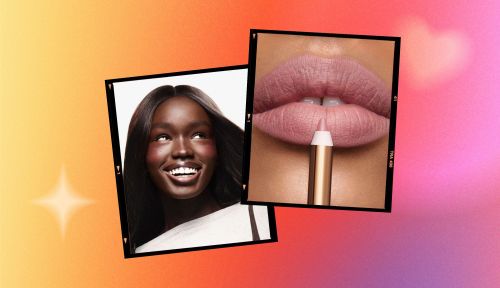Our editors independently select these products. Making a purchase through our links may earn Well+Good a commission
If Your Scalp Is Feeling Dry and Itchy, Here Are Remedies To Help You Deal
Learn how to soothe a dry scalp with natural remedies like apple cider vinegar, plus why it happens, and how to keep your scalp moisturized.
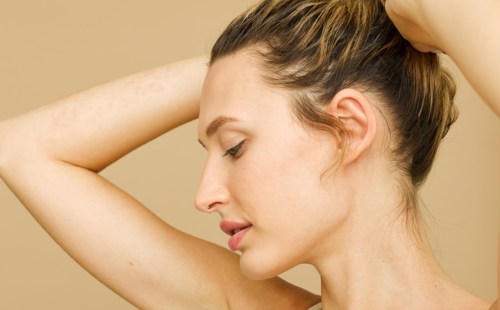
There are few things as frustrating as an irritated, dry scalp. Unlike dry skin, which may feel tight, a dry scalp is also usually itchy and painful. Plus, like dandruff (which isn’t exactly the same—don’t worry, we’ll get there), a dry scalp can produce obvious flakes that get stuck in your hair or onto your clothes. Not exactly ideal.
Experts in This Article
board-certified physician and anesthesiologist
board-certified dermatologist and founder of Curology
trichologist and chief scientist at Évolis Professional
trichologist and founder of Alodia
“The skin of your scalp is very much like the skin of your face or the rest of your body,” explains Dominic Burg, PhD chief scientist and trichologist with Evolis Professional. “The moisture of the scalp is influenced by the sebaceous glands, which reside within each follicle. As we know, with the skin of the face, there are a variety of skin types ranging from dry to oily, and this is no different for the scalp.”
Ahead, we spoke to trichologist Isfahan Chambers-Harris MPH, PhD; Azza Halim, MD, a board-certified physician; David Lortscher, board-certified dermatologist, CEO, and founder of Curology; and Dominic Burg, PhD, chief scientist and trichologist with Evolis Professional, to discuss what exactly is causing dryness on your scalp, how to remedy it with truly effective ingredients, and the best ways to prevent it from reoccurring year after year.
What is dry scalp?
“Dry scalp is mainly due to lack of moisture,” says trichologist Chambers-Harris, who founded scalp-care brand Alodia in 2017. Telltale signs include an itchy scalp that persists, irritation, as well as flakes—and if the skin on other parts of your body, such as your arms, legs, and trunk are dry, you may suffer from dry scalp, too. “Dry scalp flakes are small and dry, while dandruff flakes are larger, oilier, and often yellowish or whitish in color.”
Dandruff vs. dry scalp
Of course, many people confuse a dry scalp with dandruff—and it’s easy to see why. While a lack of moisture causes dry scalp, “dandruff is the result of excess oils or overgrowth of yeast,” says Dr. Halim. And having a dry scalp doesn’t necessarily mean one has dandruff, which is why proper assessment for accurate diagnosis can help optimize the treatment plan.”
Causes of dry scalp
Dry scalp can have many different causes, some of which overlap with the causes of dry skin on other parts of the body, says Dr. Chambers-Harris. Some causes of dry scalp are:
Hair products + washing habits
We’ve all heard that certain ingredients in hair products like sulfates or alcohol can dry out or otherwise irritate the scalp, so that’s usually a great starting point in your quest to solve the issue.
“Washing hair too frequently or using harsh shampoos can strip the scalp of its natural oils, causing dryness and irritation,” says Dr. Chambers-Harris. Additionally, she says that chemical treatments like hair dyes, perms, and relaxers can irritate the scalp and strip it of its natural moisture. Dr. Halim adds that product buildup that needs to be properly washed away can also contribute.
Environmental factors
Dry indoor air—especially during the winter months when forced heating systems are running—can cause a dry scalp, says Dr. Chambers-Harris. While this is more common with forced heat, dry climates that lack humidity all year-round can also play a factor.
Unfiltered water
Hard water—which is packed with minerals like calcium and magnesium—can have the same effect on your scalp as it does the rest of your skin. “It’s been noted that contact with hard water can disrupt the protective epidermal barrier, which may aggravate atopic dermatitis, dry skin, and cause resultant itching,” says Dr. Lortscher. If this happens to be the root of your issues, a filtered shower head may be all you need.
Hormonal changes
Hormonal changes like puberty, pregnancy, or menopause can also affect the skin’s oil production and contribute to a dry scalp. While it may be hard to make changes, blood work can confirm any suspicions.
Other skin conditions
Because the scalp is skin, many conditions can cause dryness and flaking. Psoriasis can affect the scalp, causing red, scaly patches and flakiness that cause the scalp to become dry and irritated. Seborrheic dermatitis, a common skin condition that causes redness, itching, and flaking, particularly in areas rich in oil glands, such as the scalp, face, and upper chest, can also be a contributing factor, says Dr. Chambers-Harris.
“Seborrheic dermatitis is a common dermatological disorder with incidence peaks during three age periods: in the first three months of life, during puberty, and in adulthood with an apex at 40 to 60 years of age,” according to the Journal of Investigative Dermatology. If you’re concerned about any of these particular issues, it’s worth chatting with a dermatologist to see what’s going on.
Dry scalp treatments
It’s possible to treat dry scalp at home using various products, such as moisturizing shampoos, conditioning treatments, and scalp masks, says Dr. Chambers-Harris.
Check your labels
Because alcohols, silicones, and sulfates are common irritants, it’s best to avoid shampoos, conditioners, or any other product that may come in contact with your scalp that has these listed near the top of the ingredient list. Anything with perfume could also be the culprit behind excess dryness.
“I’d suggest looking to remove harsh chemicals from your routine, such as sulfates, which are drying,” says Dr. Burg. He also recommends ditching silicones, which he says can suffocate the skin on the head and keep it from breathing and getting moisturizing ingredients. Instead, Dr. Halim says to look for coconut oil, shea butter, or aloe products, as they’re all gently moisturizing and anti-inflammatory.
Wash less often
Dr. Halim recommends shampooing a dry scalp every three days, as “washing too often or not often enough cleansing can aggravate dry scalp equally.” She also recommends moisturizing the scalp directly between washes “to restore the scalp barrier, just one does for skin barrier.“
Eliminate environmental factors
Even if your apartment or home has hard water, there are myriad shower head systems that can filter out high levels of irritants like residual chlorine, fluoride, and other impurities in hard water to soften your water. The Brondell VivaSpring Filtered Shower Head and Jolie’s Filtered Shower Head are great options. In the meantime a humidifier offers a great way to keep moisture in the air, which can benefit your hair, skin, and even breathing habits while you sleep.
Change your diet
Dr. Chambers-Harris recommends a diet that’s rich in nutrients, including vitamins A, C, E, and omega-3 fatty acids, which are essential for healthy skin and scalp and that you drink plenty of water. Dr. Halim echoes this, explaining that “our gut microbiome is related to our skin microbiome, which contributes to scalp health. In a study published in the Journal of Clinical, Cosmetic and Investigational Dermatology, scientists developed an ointment that “primarily consists of probiotics, honey, turmeric and B12 aimed at restoring a healthy skin microbiome” and successfully reduced dry scalp significantly in its participants.
Natural remedies for dry scalp
If you’d rather go the natural route, Dr. Chambers-Harris recommends” natural remedies such as coconut oil, olive oil, or aloe vera gel, which can help moisturize the scalp. Apply these directly to the scalp, leave them on for a few hours or overnight, and then wash them out with a gentle shampoo.”
She also says those DIY apple cider vinegar soaks that are all over the internet may work—but only if you water it down. “Apple cider vinegar can help by balancing the scalp’s pH, but it’s key to mix it with water. I don’t recommend lemon because it’s extremely acidic.”
“I suggest looking for product alternatives with gentle, natural ingredients,” adds Dr. Burg. “Aloe is a great ingredient for adding moisture, as is vitamin E, but when it comes to moisture, baobab oil really is king.”
How do you get rid of dry scalp
If you’ve changed your diet to include more fatty acids, changed your wash cycle to once every three days, tried some of the recommended natural remedies, and ditched products with potential irritants, it’s probably time to visit a professional.
“If you find that using these remedies are ineffective, you may need to visit a dermatologist,” says Dr. Halim, who stresses that a trained dermatologist can properly assess your skin under a microscope.
What is the best moisturizer for dry scalp
“Any ingredient that moisturizes and balances the scalp, like aloe vera, hyaluronic acid, or glycerin, is key,” says Dr. Chambers-Harris, who packed them all into Alodia’s Scalp Relief Bundle. She also recommends coconut oil, olive oil, as well as experimenting with other hydrating plant oils.
How do you moisturize your scalp?

Alodia Scalp Relief Bundle — $77.00
A bundle from Dr. Chambers-Harris’s line, this collection includes a shampoo, hair oil, and two masks with hydrating ingredients like aloe vera, cocoa butter, hyaluronic acid, and glycerin.
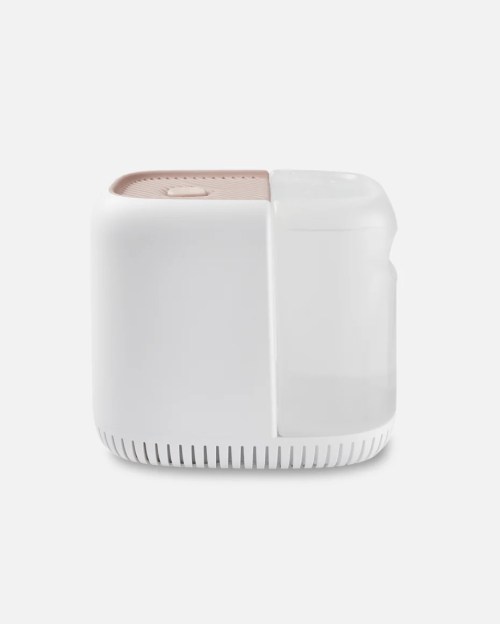
Canopy Portable Humidifier — $100.00
While water alone isn’t moisturizing, it can help soothe a dry, itchy scalp and better prepare it for hydrating ingredients like aloe vera, hyaluronic acid, or glycerin. Canopy’s Portable Humidifier is a dermatologist-approved option.
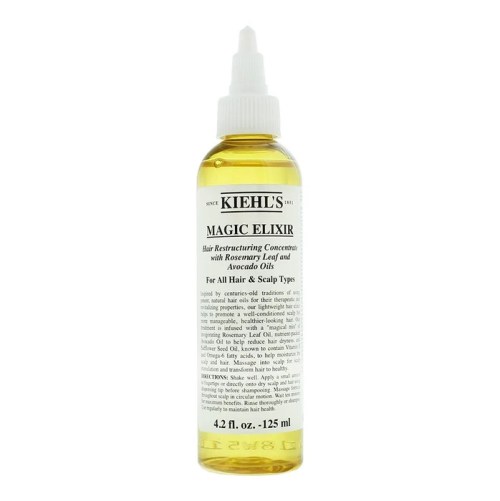
Kiehl’s Magic Elixir Scalp and Hair Oil Treatment — $25.00
This leave-in treatment is sulfate-free and synthetic fragrance-free, and relies on hydrating rosemary lead and avocado oils to hydrate the scalp.
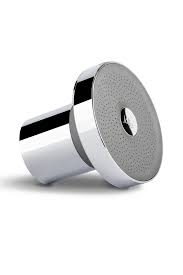
Jolie Filtered Shower Head — $165.00
A favorite of editors and derms, this shower head works to remove chlorine, heavy metals, and other common contaminants that may cause irritation and dryness.
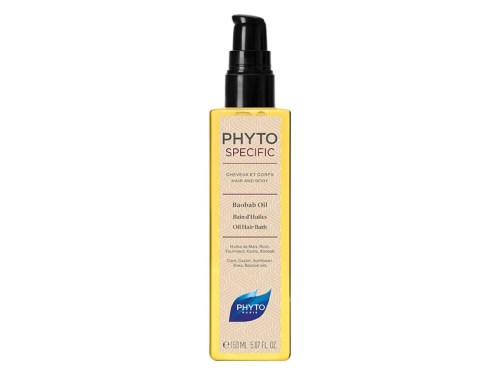
Phyto Baobab Oil — $32.00
This hydrating oil features Dr. Burg’s favorite, baobab oil, along with shea butter and castor seed oil.
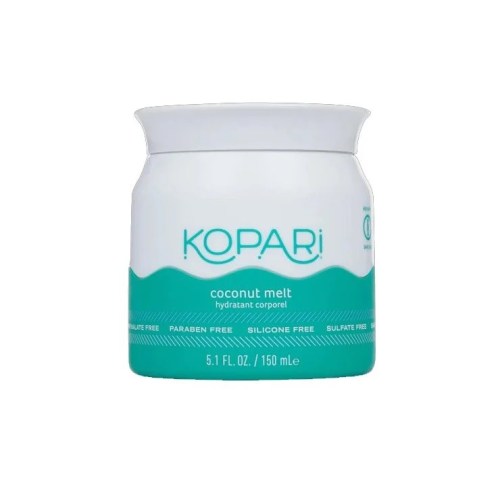
Kopari Organic Coconut Melt — $12.00
A favorite ingredient of Dr. Chambers-Harris, coconut oil is a soothing anti-inflammatory for the scalp. While you can buy this at your local grocery store, this pick from Kopari is unrefined and features a large opening for easy scooping.
Final takeaway
A dry scalp may be an itchy pain, but it doesn’t have to be a fact of life. If these solutions aren’t providing relief, it may be time to visit a dermatologist to see if a more significant issue, like psoriasis or dermatitis, is at play.
Sign up for the Well+Good SHOP Newsletter
Get exclusive deals on wellness, beauty, fitness, and food products that have been hand-picked by our editors.
Got it, you've been added to our email list.

